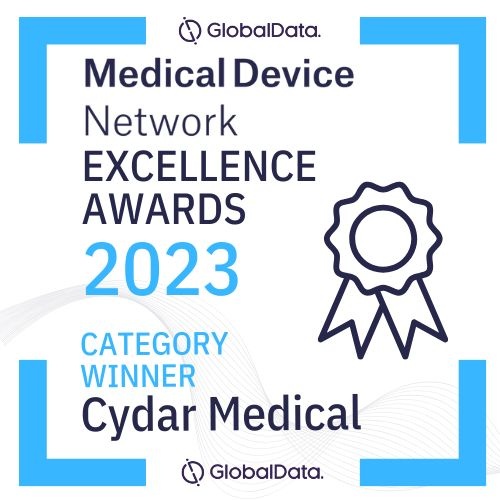Blog
Medical Device Network Excellence Awards 2023: Cydar Medical
Category Award Winner for Innovation and Product Launches: Medical software company leverages its market-leading AI solution to unlock the full potential of minimally invasive surgical procedures. Read more here.
Read more: Medical Device Ne...New Drugs And The Opportunity For Integrated Care In The Healthcare Industry
Scientific discovery’s rapid pace has led to a constant drumbeat of new drugs entering the market, and it takes a collective effort to see that those drugs perform well in patients. That means a unified approach from drug manufacturers, pharmacies, health systems and insurers to build a unique strategy for each therapy. The recent popularity of a class of drugs for weight loss and diabetes called GLP-1s has produced a unique scenario that presents challenges for that unified effort. Without the proper approach, patients could face diminished results from this new class of therapies and future drugs entering the market.
Read more: New Drugs And The...Four Components Of An Effective Technology Rationalization Strategy In Healthcare Mergers And Acquisitions
Mergers and acquisitions (M&A) in healthcare are common. Although 2022 saw a drop in the number of M&A deals per quarter (down 400 per quarter from 600 the year prior), specialists expect M&A activity to rise again in 2023.
Read more: Four Components O...Healthcare’s Digital Transformation: How DevSecOps Protects Data
The global digital health market is expected to grow 17.5% by 2027, reaching a total valuation of $456 million. These organizations manage—and create—a ton of data. In fact, one-third of the world’s data volume is generated by the healthcare industry, making it a prime target for cybercriminals.
Read more: Healthcare’s Digi...How Blockchain Can Revolutionize Healthcare Records Access and Security
One of the great challenges for the healthcare industry has always been patient privacy. Whether it’s a hospital setting, a physician’s office, or a child’s vaccination records required by a school, we are right to be cautious with sensitive medical data.
Read more: How Blockchain Ca...The Changing Face Of Healthcare: The Rise Of The Middlemen
“The significance of the intimate personal relationship between physician and patient cannot be too strongly emphasized,” the great Boston physician and Harvard professor of medicine Francis Weld Peabody wrote in “The Care of the Patient” back in 1927. To Dr. Peabody, the clinical and the personal were deeply intertwined; a deep sense of intimacy between the physician and patient was essential to healing.
Read more: The Changing Face...Can AI Fix The U.S. Healthcare System?
John Guttag is a computer scientist and professor at CSAIL and EECS MIT, recognized for his significant contributions to the fields of programming languages and artificial intelligence.
Read more: Can AI Fix The U....Google Is Rapidly Becoming A Healthcare Powerhouse
Healthcare is a complicated industry, muddled by a variety of intricately woven challenges, delicacies, and nuances that are unique to the sector. Tackling these challenges is certainly not for the faint-hearted, especially in the modern era of continuously changing regulatory demands, technological developments, and evolving patient and public health needs.
Read more: Google Is Rapidly...The Urgency For Wage Reform Education And Healthcare Sectors
In an era marked by escalating tensions between the public and private sectors, a widening wage gap in many nations, coupled with struggling educator pay scales, has underlined the urgency for significant federal pay policy reform.
Read more: The Urgency For W...Bringing DEI To The Forefront Of Healthcare Marketing
TJ Martin is CEO of Cramer, a brand experience and content marketing agency with a division dedicated exclusively to healthcare.
Read more: Bringing DEI To T...InterSystems unveils integration’s impact on #healthtech growth
The adoption of standards like HL7® FHIR® is key to helping #HealthTech companies achieve better #interoperability and integration between different services and applications. Find out from InterSystems sales manager Vadim Fedorov how the solutions can effectively solve #healthcare interoperability challenges. Read more here.
Read more: InterSystems unve...Paging Dr. Taylor Swift: The Healthcare Hero We Need
Anyone and everyone who spends over a decade mastering their craft wants ownership and control of their work. Physicians have fallen victim to this loss of autonomy in an ecosystem that continues to place a premium on volume and efficiency over meaningful connection and consideration. We arrived here by attempting to stay in our lane and letting the business of medicine be managed by the businessmen.
Read more: Paging Dr. Taylor...

